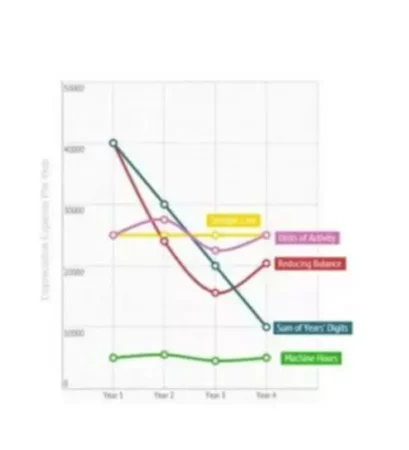Rockstar Book Review: “Broke Millennial”

This is a track record of how well you’ve managed debt throughout your life. It’s https://forexarena.net/ also what lenders go by whenever you want to borrow money for a car or house. With a little over $1,000 left, it’s difficult to set 20%, or $500, aside each month for savings.
Category: Personal Finance Self-Improvement & Inspiration Audiobooks
I have to be honest, the advice from Broke Millennial seems very basic. These are pretty introductory-level financial tips and, although it mentions financial freedom, they won’t really get you there. At best these lessons can keep you from staying broke, but they certainly aren’t going to make you rich. While it’s very broke millennial review useful to be able to talk about finances with the people in your life, it’s also important to have positive money talks with your inner self. Because talking about money can be awkward, you may think it’s better to rip off the Band-aid and put everything on the table in one conversation.
Rockstar Book Review: “Broke Millennial”
It may become outdated an there is no obligation to update any such information. This is a great book for millennials trying to figure out how to manage money, now and for the future, from a peer who walks the talk. Having the seemingly endless supply of money that comes from having a credit card sounds nice, but it can be really dangerous. But if you want your financial resume to be complete, you’ve got to get them. The good news is that it’s not your fault and that you don’t have to stay broke forever.
obvious money lessons from ‘Broke Millennial’ I wish I’d learned sooner
I had the opportunity to read Lowry’s book and chat with her via Facebook Live. Many of us have been raised to believe that money and finances are not topics to bring up in polite company.
About the Author
With over 450 summaries that he contributed to Four Minute Books, first as a part-time writer, then as our full-time Managing Editor until late 2021, Luke is our second-most prolific writer. He’s also a professional, licensed engineer, working in the solar industry. Next to his day job, he also runs Goal Engineering, a website dedicated to achieving your goals with a unique, system. Luke is also a husband, father, 75 Hard finisher, and lover of the outdoors.
- These are pretty introductory-level financial tips and, although it mentions financial freedom, they won’t really get you there.
- I have to be honest, the advice from Broke Millennial seems very basic.
- But if you want your financial resume to be complete, you’ve got to get them.
Specifications
While not every career trajectory is going to look the exact same, knowing the risks of not negotiating made it seem silly not to at least try. This is the ideal, but you can modify it for your circumstances. Many of us feel like we’ve got a pretty good grasp on how to manage our expenses. But if you’re a brand new college graduate and broke, this aspect of adulthood might be more than a little intimidating.
By waking up to our personal finance outlook and beliefs, we can start to question the status quo and change what isn’t helping us be successful with money and keep doing, or doing more of, what is helping us succeed. “Broke Millennial Talks Money” breaks down how to have these crucial conversations about finances. Almost everyone can relate to one of the situations discussed in this book.
Packed with refreshingly simple advice and hilarious true stories, Broke Millennial is the essential roadmap every financially clueless millennial needs to become a money master. True to her audience, the book provides shortcuts to the most useful information based on the reader’s current beliefs and financial situation. If we’re a “live for today” type of a person, the author suggests that a personal review of debt, spending patterns and credit worthiness might be in order. There’s no problem with having a focus on the present and getting the most out of life, as long as it doesn’t involve mortgaging our future wellness in the process.

If we’re a “life will get rosy when [insert event or earning level here]” type of individual, her advice skews toward the idea that yes, at some point in the future it might be easier to pay down debt, save and invest. But learning these habits now only makes the behaviors easier to maintain over time. We can grow into good money habits as income grows, but there’s no need to wait for some magic future date. Finally, if we’re a “live for the future” type of person, the advice for us is to keep up our great habits without feeling the need to sacrifice everything that’s great about being in the here and now. I liked that “Broke Millennial” promised to do more than just cover credit cards, debt, investing, and budgeting. But there are ways to discuss money without mentioning any dollar figure.
The fear of being judged about those numbers is what makes many people reluctant to talk about finances altogether. Before reading “Broke Millennial,” I didn’t believe there was a difference between making debt payments once every month or once every other week. What difference does it make if I owe $400 a month and pay that all at once or $200 on the first and third week? While the book came out in 2017, I was looking for something that could cover the broad financial landscape for young professionals, and I was confident Lowry’s advice would still be relevant. I felt eager to learn but admittedly naive about a lot of personal finance topics. I promised myself that I would never make purchases more than what I could pay off in a month and that I would pay it off entirely every month.
In the book, Lowry says chatting with friends about housing prices or child care costs can lead to bigger money talks in the future. Getting context clues about how a significant other spends money can be helpful to gauge whether you’re on the same page financially. Erin wants you to think about the kind of saver or spender you are. That matters more than most of us appreciate because the stories we tell ourselves about money and its role in our lives dictate much of our behavior and, unfortunately, we tend not to question them. The author suggests that much of our beliefs about money come from how we grew up and that it’s a good idea to do some introspection to get real about whether our behaviors are working for us.



